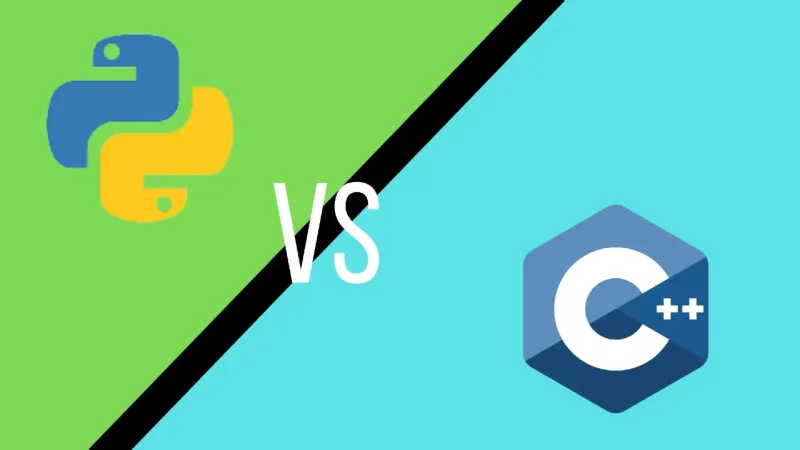Why you need a coding community 🔗
The one thing that every programmer has in common, whether they’ve only ever implemented a “Hello World” program or they’re considered a “senior” software engineer, is the need to continuously learn. New technologies, programming languages, frameworks, libraries, and conventions are constantly being introduced to the industry. As a beginner, it can be hard to suss out what you need to know to enter the profession, and once you’re a proficient coder, it’s tiring to constantly investigate trending topics in tech.
That’s why getting involved in a tech community is so important. With the rise of hybrid, remote, and freelance work, connecting with colleagues on your team and other teams within your company is harder than it used to be, and that’s assuming you have other coding colleagues. “The Great Resignation”, amongst higher-than-normal turnover rates make it hard to connect with those moving through the revolving door of employment. If you find yourself missing technical mentors, peers, or friends of a similar profession, your best bet is to reach out online to find friends within the many coding communities already in existence.
1. Discord 🔗
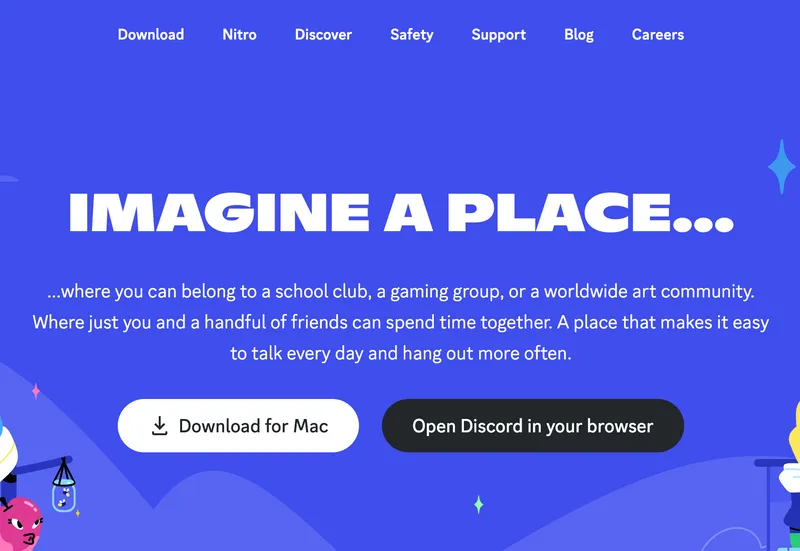
Discord is a community-based chat app originally developed for gamers. That said, these days they’ve expanded and now there are a lot of prominent, popular Discord “servers” for coding. A “server” is an individual community focused on one topic.
There are servers like Boot.dev’s back-end learning community, where people learning to code can go to find support, advice, and experience in languages like JavaScript, Python and Go. There are also topic-specific servers for JavaScript, TensorFlow, Python, and many more.
Discord is great for getting support in real-time. With so many different servers focused on sharing content, promoting projects, collaborating on open-source projects, specific tools and technologies, and even professional topics, it’s easy to find help for a lot of different areas all in one place.
The biggest bonus of Discord is that it creates a more intimate environment, meaning it’s a lot easier to get 1:1 help or connect with a smaller group of people. Discord servers like Boot.dev’s can provide you with a strong sense of community and support, which is crucial for the beginning stages of your programming career.
2. Reddit 🔗
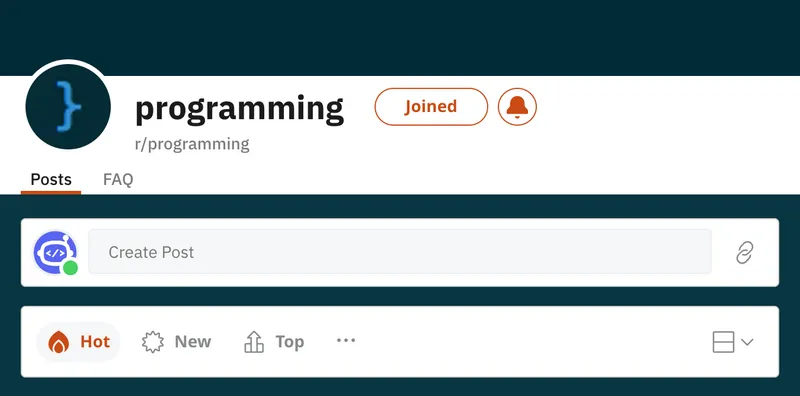
Reddit is a popular online forum for almost anything you can find on the internet. Under the umbrella of programming, there exist a lot of different subreddits for different topics like Java, JavaScript, Go, Rust, etc. The content is posted in a question/answer format, similar to that of GitHub, DEV, and CodeNewbie.
You can view different collections of topics, look at the most-voted posts within each topic, and you can message individual users, meaning there does exist the possibility of building up to something like a mentoring relationship with other users. However, since Reddit is so open, public, and huge, it can be difficult to truly build up relationships with other users.
Reddit to me is more like a random collection of links to articles, tutorials, conferences, hack-a-thons, etc. It’s a good place to show off cool projects or get inspired by others, but if you’re looking for a tribe of like-minded people to get through the journey of entering the software industry, Reddit will leave you feeling isolated and overwhelmed.
3. FreeCodeCamp 🔗
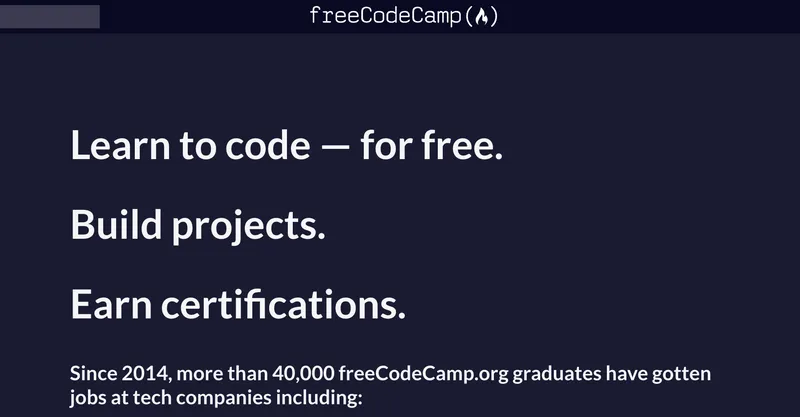
FreeCodeCamp is a platform where anyone can learn coding basics for free! I love their mission and they have an absolute glut of information that you can sift through on almost any coding topic. That said, their forum is of particular interest, it’s one of the best coding communities you can find online. People are helping each other build projects, solve challenges, get jobs, and so much more.
They have a Discord community as well as a forum that you can use to connect with other FreeCodeCampers!
4. GitHub 🔗
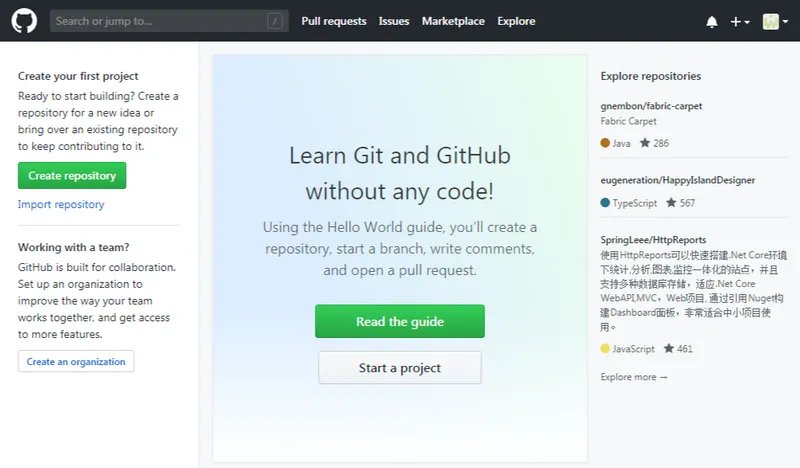
GitHub is a platform for developers to share code and collaborate on projects. It’s a great place to find open-source projects to contribute to, and it’s also a great place to ask questions about code. They have a forum where you can ask questions about code, and you can also search for answers to questions that have already been asked.
5. Hacker News 🔗
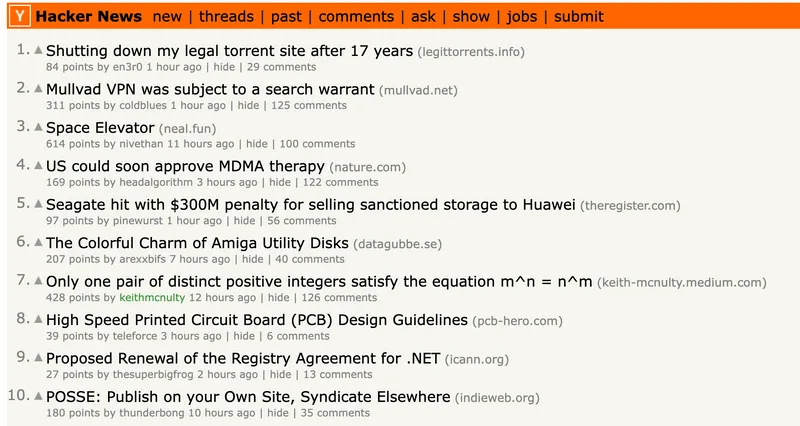
Hacker News a list of programming news articles hosted by the famous Y Combinator. Hacker News is an aggregation site, so users are the ones sharing, upvoting, and deciding which articles make it to the top of the feed. They have a lot of great content for start-up/freelance career advice. On Hacker News, you can find lots of interesting articles, which can serve as good inspiration for what you can do with your coding skills, either on your own or at a company.
You can connect with other users, but it’s mostly for finding articles to read. Hacker News’ biggest strength is providing current news about what’s happening in the world of developers. If you’re looking for tips regarding useful libraries and tools, it’s a wonderful place to look.
One additional bonus of Hacker News is that it has a job board for startups, so if that’s the direction you’re looking to head in, it will provide you with some good contacts.
What Hacker News does not provide you with is specific help on questions, and the community won’t coddle you. If you’re looking for encouragement and support to start coding, this isn’t the place.
6. Hashnode 🔗
Hashnode provides a great way to discover and digest tech blogs. The platform allows you to follow individual tech bloggers and connect with them. They have a lot of programming challenges and explanations of the basics, so it’s a good place to get grounded and stretch the application of your skills.
This platform is more focused on giving writers with technical knowledge a place to post their content. This means it’s a good place to find well-written content from those with the technical know-how, but it isn’t a supremely social environment. The platform is not conducive to getting specific help for a problem or establishing deeper connections. It’s more like following someone than getting to interact with them.
7. CodePen 🔗
Another great option for a community to help you learn to code is CodePen. CodePen is mainly focused on front-end content, so depending on the direction you want to take your programming career in, this can be a benefit or a drawback. However, it’s important to know where to look for information, so even if you aren’t currently interested in front-end development, there may come a day when that will change or your future team assigns you a random UX bug to deal with.
CodePen has a nice environment to play around with your code. I think this is a huge plus, especially when you’re just starting in the coding world. Getting a whole application up and running locally can lead to a lot of headaches and gets in the way of you just playing around with some code. CodePen claims it is the “best place to build, test, and discover front-end code.” At the very least, CodePen’s dev tools can be used as a good sandbox.
Codepen also hosts weekly challenges to hone your front-end development skills. They feature winners across their social channels, which allows you to learn from the best and connect with those with the skills you aspire to have.
They have lots of really cool, helpful frontend dev content, making it a Great place to look for implementation inspiration.
The biggest drawback of CodePen is that you need a private, paid account to keep all of the cool things you implement in their frontend environment private. If you’re just messing around with different bits, that’s not a problem, but if you’re working on anything sensitive or that you don’t want others to look at, you can’t use CodePen for their sandbox.
8. CodeNewbie 🔗
What started as a weekly TwitterChat has become an international community of people learning to code and supporting each other. CodeNewbie looks to support developers in need of early-career mentorship. They want to arm you with the knowledge of how to launch your career from the post-bootcamp stage to senior software engineer.
CodeNewbie has tons of content in different formats, including podcasts, Twitter chats, the CodeLand conference, hackathons, and more. They have managed to attract a good amount of experts to their platform. It’s a great place to stumble across high-quality content that’s geared toward all levels of programmers.
CodeNewbie has been dubbed as a platform for developers to “write about their knowledge and experience, and connection with one another.” One standout aspect of CodeNewbie is they aim to help you figure out how to figure things out using content like their guide to asking questions. These non-code tips go a long way in supporting your career development.
9. DEV.to 🔗
If you are looking for a community that will provide you with a space for collaboration and networked learning, DEV could be a great fit for you. They’ve got over 800,000 developers on their platform and cover a lot of niche topics in-depth, like finding cross-browser compatibility issues in HTML and CSS, how to set up an AWS security hub, and more business-minded topics like a guide to common B2B SaaS integration patterns and when to use them.
The DEV community has a plethora of articles contributed by their very large community. You can take a deeper dive into a specific topic, see what the latest posts are to get a feel for current computer science news or look into their all-time top articles.
DEV does have a social media aspect, so you can post questions and get answers via comments and tag with #help. The format is similar to Facebook’s timeline feed with comments for answers, and the articles are more like what you’d find in the tech topics on Medium. As far as finding a group of people to support you in your journey, DEV lacks the 1:1 connection ability and has grown too large to help you on an individual level and provide you with tailored support or advice.
10. CoderDojo 🔗
CoderDojo has a lovely collection of free, open, and local programming clubs focused on younger generations. They have curated a sample of programming projects for beginners, like making a chatbot using scratch, creating a meme generator in HTML, and implementing a pong game using Python.
The biggest issue is that it’s focused on school-age learners, and it tends to be focused on in-person meet-ups, so your participation is limited by where you are located. On the other hand, if you have some experience, you can volunteer as a mentor. Explaining computer science basics to others can help solidify your understanding of the concepts.
Even if you do not avail of their in-person meet-ups, I think the mini-project guides they have are super cool for applying your coding skills differently. The majority of their guides are also geared towards complete beginners, which can help you avoid getting super frustrated and overwhelmed.
Which community is right for you? 🔗
Different communities have different strengths. Some are great for real-time support by connecting with other individuals directly. For example, Discord servers such as Boot.dev. Other communities are better for answering specific technical questions (DEV, CodeNewbie, and Dream in Code).
Personal connections will help you build up a collection of technical mentors. A close network is also great for mock interviews, referrals for jobs, etc. Especially when it comes to maintaining your motivation, inspiration, and emotional energy, a close-knit group of coding learners is the backbone to a successful start in the programming world.
If you’re new to programming, it’s great for your long-term motivation to get inspired by all the cool applications that other beginners and early-in-careers have implemented. After you’ve used some of these sites to find inspiration from cool projects and you’ve had the chance to build up your skills, you’ll be showing off your amazing projects in no time.



